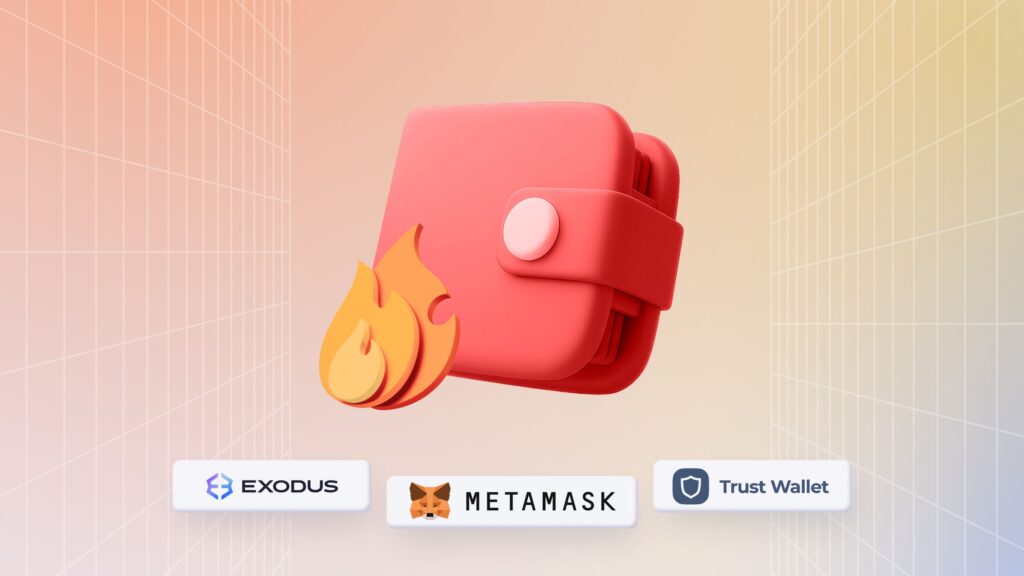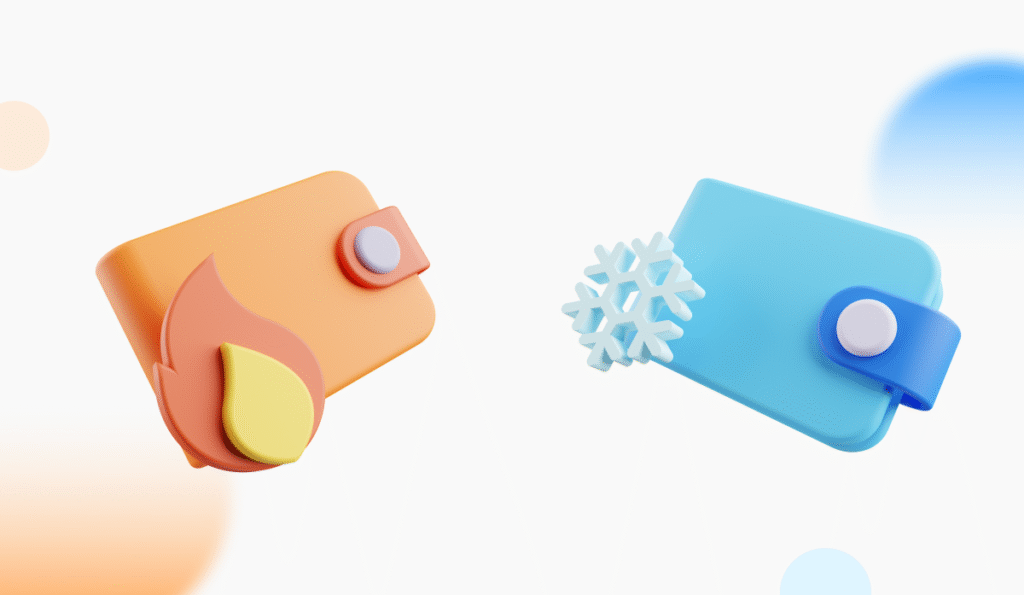Diving into the world of Shell Token, a groundbreaking cryptocurrency bridging traditional energy markets with blockchain innovation, requires a fundamental understanding of how to securely manage your digital assets. This article will demystify crypto wallets, your essential tool for holding Shell Tokens, explaining their core concepts, exploring different types, and offering practical guidance to ensure your tokens are safe and accessible.
The Core Concept: What Exactly is a Crypto Wallet?
At its heart, a crypto wallet isn’t a physical place where your Shell Tokens are stored, akin to a bank account holding fiat currency. Instead, it’s a tool—a software application or a physical device—that enables you to interact with a blockchain network. Think of it as your digital key to the Shell Token ecosystem. Each wallet contains a pair of cryptographic keys: a public key and a private key. The public key is like your bank account number; you can share it with others to receive1 Shell Tokens. The private key, however, is the secret code that grants you access to spend your tokens. Safeguarding this private key is paramount, as anyone with access to it can control your funds.
Unpacking the Different Types of Crypto Wallets
Crypto wallets come in various forms, each offering a different balance of convenience, security, and control. Understanding these distinctions is crucial when choosing the right wallet for your Shell Tokens.
Hot Wallets vs. Cold Wallets: A Spectrum of Security
The primary distinction among crypto wallets lies in their connectivity to the internet, categorizing them as either “hot” or “cold.”
Hot Wallets: Always Connected, Always Ready
Hot wallets are cryptocurrency wallets that are connected to the internet. Their online nature makes them highly convenient for frequent transactions and quick access to your Shell Tokens. However, this connectivity also exposes them to greater security risks, as they are more vulnerable to online attacks.
- Software Wallets: These are applications you can download and install on your desktop, laptop, or mobile device. They offer a user-friendly interface for managing your Shell Tokens and often come with features like transaction history and real-time balance updates.
- Desktop Wallets: Installed directly on your computer, these wallets give you full control over your private keys. Examples include Exodus or Atomic Wallet. While convenient, the security of a desktop wallet largely depends on the security of your computer itself.
- Mobile Wallets: Designed for smartphones, these apps offer unparalleled convenience for on-the-go transactions. Popular choices include Trust Wallet or MetaMask (as a mobile app). Their ease of use makes them ideal for daily Shell Token interactions, but mobile devices are susceptible to various threats like malware or physical loss.
- Web Wallets: Accessed directly through a web browser, these wallets are often integrated into cryptocurrency exchanges or online platforms. They are incredibly convenient as they don’t require any software installation. However, the private keys are often managed by a third party, which introduces a custodial risk. If the platform is compromised, your Shell Tokens could be at risk.

Cold Wallets: Offline Security for Long-Term Holdings
Cold wallets are designed for maximum security, as they are not connected to the internet. This offline nature makes them highly resistant to online hacking attempts, making them ideal for storing larger amounts of Shell Tokens for the long term.
- Hardware Wallets: These are physical devices that store your private keys offline. When you need to make a transaction, you connect the device to your computer or phone, authorize the transaction on the device itself, and then disconnect it. This ensures your private keys never touch an internet-connected environment. Ledger and Trezor are prominent examples. They offer an excellent balance of security and usability.
- Paper Wallets: A paper wallet is simply a physical printout of your public and private keys. While seemingly straightforward and secure due to being completely offline, they are prone to physical damage (fire, water) or loss. Generating them securely is crucial to avoid compromises. For instance, creating them on an offline computer is a best practice.

Custodial vs. Non-Custodial Wallets: Who Holds the Keys?
Another critical distinction revolves around who controls your private keys. This factor significantly impacts your control and responsibility over your Shell Tokens.
Non-Custodial Wallets: You’re the Master of Your Keys
With a non-custodial wallet, you have sole control over your private keys. This means you are entirely responsible for their security and backup. This offers the highest level of autonomy and security, as no third party can freeze or access your Shell Tokens without your private key. Most hardware wallets, desktop wallets, and some mobile wallets are non-custodial. The Shell Token whitepaper emphasizes community ownership and direct value exchange, aligning with the principles of non-custodial wallets where users maintain full control over their assets.
- Advantages: Complete control over your Shell Tokens, no risk of third-party freezing your assets, enhanced privacy.
- Disadvantages: Full responsibility for security; if you lose your private key or seed phrase, your Shell Tokens are irretrievable.
Custodial Wallets: Trusting a Third Party
In contrast, a custodial wallet means a third party, such as a cryptocurrency exchange, holds and manages your private keys on your behalf. While convenient, as it removes the burden of private key management from you, it also introduces a layer of trust. You are essentially entrusting your Shell Tokens to the custodian. Many web wallets offered by exchanges fall into this category.
- Advantages: Simplicity and ease of use, no need to worry about private key management, often integrated with trading platforms.
- Disadvantages: You don’t have direct control over your private keys, risk of the custodian being hacked or going bankrupt, potential for account freezing.
In your opinion, what is the most significant challenge in maintaining the security of your private keys for a non-custodial wallet?
Choosing the Right Crypto Wallet for Your Shell Tokens
Selecting the ideal wallet for your Shell Tokens depends on your individual needs, the amount of tokens you plan to hold, and your comfort level with technology.
For Short-Term Holdings and Frequent Transactions: Hot Wallets
If you intend to actively use your Shell Tokens for daily purchases, participating in environmental challenges, or redeeming loyalty rewards, a hot wallet offers the necessary convenience.
- Mobile Wallets: Excellent for quick access and on-the-go transactions at Shell retail locations. They are generally user-friendly and integrate well with mobile applications for tracking loyalty and rewards.
- Web Wallets (Exchange-based): If you plan to frequently trade Shell Tokens on decentralized or centralized exchanges, keeping a portion of your tokens on an exchange’s web wallet can be convenient for immediate access to trading pairs. However, remember the custodial risk associated with them.
For Long-Term Holdings and Maximum Security: Cold Wallets
For larger investments in Shell Tokens or for holding them as appreciating assets, a cold wallet is highly recommended due to its superior security.
- Hardware Wallets: The gold standard for security, hardware wallets keep your private keys isolated from internet-connected devices. This is crucial for safeguarding your long-term Shell Token holdings from cyber threats.
- Consideration: While paper wallets offer extreme cold storage, their fragility and susceptibility to physical loss make them less practical for most users compared to hardware wallets.
Setting Up and Securing Your Shell Token Wallet
Once you’ve chosen a wallet type, the setup process is relatively straightforward, but security best practices are paramount. Shell Token is built on the BNB Chain (formerly Binance Smart Chain). This means your chosen wallet must support BNB Chain tokens (ERC-20 compatible tokens on BNB Chain).
Step-by-Step Setup (General Guidance):
- Download and Install (for software wallets): Obtain the wallet application from the official website or a reputable app store. Always double-check the source to avoid phishing scams.
- Create a New Wallet: Follow the on-screen prompts to create a new wallet. This will typically involve generating a new private key and a seed phrase (also known as a recovery phrase or mnemonic phrase).
- Secure Your Seed Phrase: This is the most crucial step. The seed phrase is a sequence of 12 or 24 words that acts as a human-readable backup of your private key. Write it down accurately on a piece of paper and store it in multiple secure, offline locations. Never store it digitally (e.g., in an email, cloud storage, or on your computer). Never share it with anyone. If you lose your seed phrase, you lose access to your Shell Tokens. If someone else gains access to it, they gain access to your tokens.
- Set a Strong Password/PIN: For software wallets and hardware wallets, create a strong, unique password or PIN.
- Fund Your Wallet: Once set up, you can transfer Shell Tokens to your wallet using your public address.
Practical Tips for Wallet Security:
- Backup Your Seed Phrase Meticulously: As emphasized, this is your ultimate recovery key. Treat it with the utmost care. Consider using a metal seed phrase storage solution for enhanced durability.
- Enable Two-Factor Authentication (2FA): If your chosen wallet or associated exchange offers 2FA, enable it immediately. This adds an extra layer of security by requiring a second verification method (e.g., a code from your phone) in addition to your password.
- Use Strong, Unique Passwords: Avoid using easily guessable passwords or reusing passwords across different accounts.
- Be Wary of Phishing Attempts: Always verify the authenticity of websites, emails, and links before clicking on them or entering any sensitive information. Scammers often create fake websites that mimic legitimate ones to steal your private keys or seed phrase.
- Regularly Update Your Wallet Software: Developers frequently release updates that include security patches and new features. Keep your wallet software up to date to ensure you have the latest protections.
- Never Share Your Private Key: This cannot be stressed enough. Your private key is the ultimate key to your Shell Tokens. No legitimate entity, including the Shell Token project team or any exchange, will ever ask for your private key or seed phrase.
- Consider Multi-Signature Wallets: For very large holdings of Shell Tokens, a multi-signature (multisig) wallet can provide enhanced security. These wallets require multiple private keys to authorize a transaction, meaning no single point of failure. The Shell Token whitepaper mentions multi-signature wallets for treasury and development funds, highlighting their importance in securing significant assets.
- Educate Yourself: Stay informed about common cryptocurrency scams and security best practices. The more you know, the better equipped you’ll be to protect your Shell Tokens.
The Importance of Seed Phrase Security
Imagine Sarah, an enthusiastic Shell Token holder, has accumulated a significant amount of tokens through loyalty rewards and environmental challenges. She initially stores them in a mobile wallet for convenience. One day, her phone is lost or stolen. Because Sarah diligently wrote down her seed phrase and stored it in a secure, offline location, she can simply download the wallet app on a new device and use her seed phrase to recover access to all her Shell Tokens. If she hadn’t backed up her seed phrase, or had stored it on the lost phone, her tokens would have been irretrievably lost. This underscores the critical importance of secure seed phrase management.
Key Takeaways for Your Shell Token Wallet
- Crypto Wallets are Your Digital Keys: They don’t store tokens directly but provide access to them on the blockchain.
- Private Key is Paramount: Whoever controls the private key controls the tokens. Never share it.
- Hot vs. Cold: Hot wallets (online) for convenience, cold wallets (offline) for maximum security.
- Custodial vs. Non-Custodial: Non-custodial gives you full control, custodial means a third party holds your keys. For Shell Token, non-custodial offers greater autonomy, aligning with the project’s decentralized vision.
- BNB Chain Compatibility: Ensure your chosen wallet supports tokens on the BNB Chain.
- Seed Phrase is Your Lifeline: Back it up securely and offline in multiple locations.
- Stay Vigilant: Be aware of phishing, scams, and always practice strong password hygiene.
Conclusion
Understanding crypto wallets is a fundamental step in engaging with the exciting Shell Token ecosystem, which aims to revolutionize consumer interaction with energy products while promoting sustainability. By carefully choosing, setting up, and securing your wallet, you empower yourself to participate in loyalty programs, environmental initiatives, and the broader decentralized finance landscape that Shell Token envisions. The project’s commitment to transparency, community governance, and innovation makes secure token management all the more vital for every participant.

